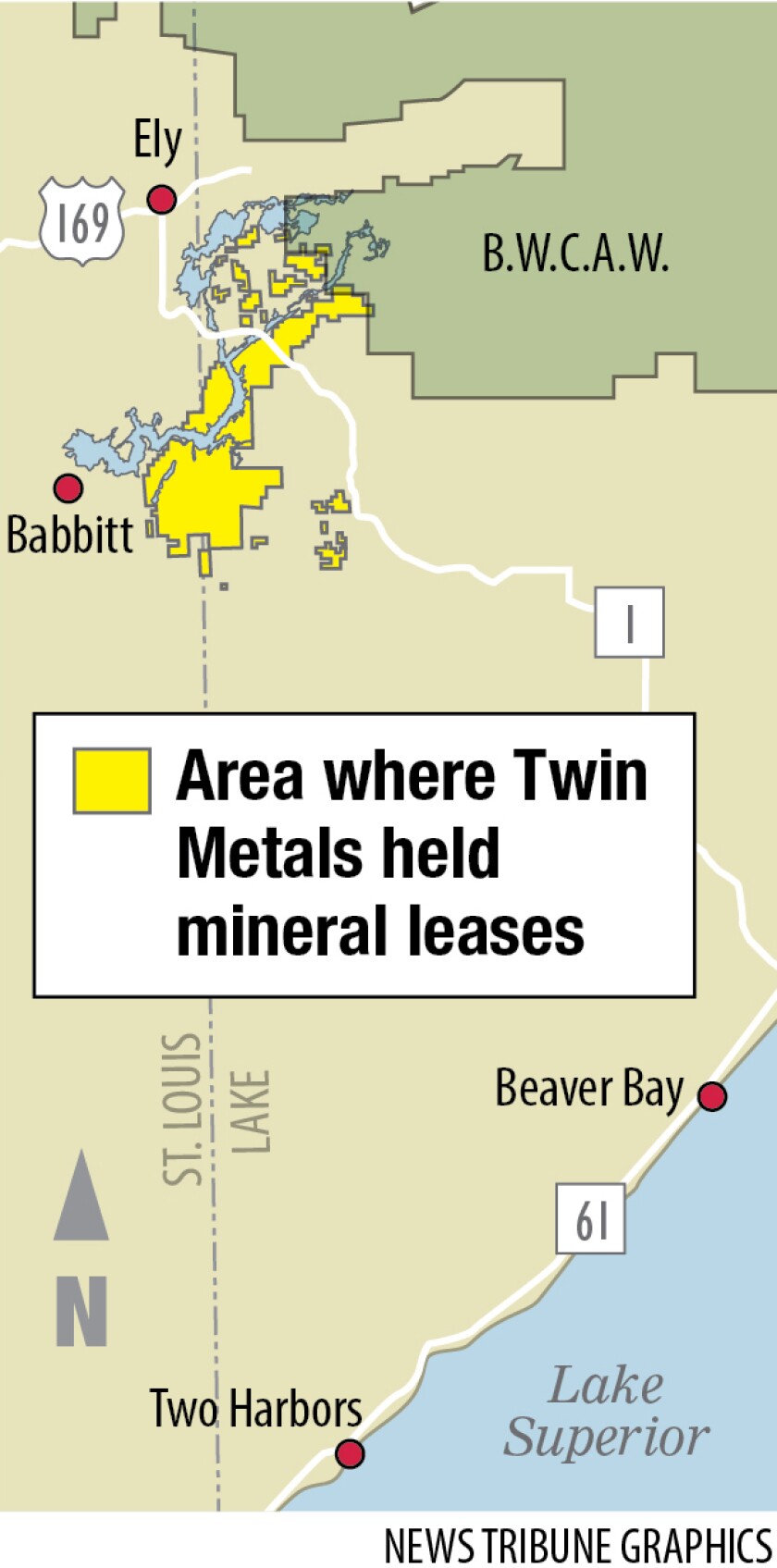MOUNTAIN IRON - U.S. Rep. Rick Nolan on Monday guided top Republican lawmakers on a tour of Northeastern Minnesota mining sites, both operating and proposed, and received strong support to overturn a mining moratorium on federal land near the Boundary Waters Canoe Area Wilderness.
Nolan, D-Crosby, was joined by Republican Reps. Tom Emmer of Minnesota, Paul Gosar of Arizona and Bruce Westerman of Arkansas touring the United Taconite iron ore mine in Eveleth and the proposed Twin Metals copper mine site near Ely.
Gossar is chairman of the House Subcommittee on Energy and Mineral Resources while Westerman serves both on that subcommittee and the Federal Lands Subcommittee. Both said they would work to overturn the 11th-hour move by the Obama administration that withdrew federal mineral leases from Twin Metals. Without the permits the project would likely be scuttled.
Gosar said he was glad to come to northern Minnesota to “see firsthand the overreach of the federal government” in rescinding mining permits and installing a two year moratorium on mining across 235,000 acres of the Superior National Forest adjacent to the BWCAW.
ADVERTISEMENT
“This might seem like a local issue but it’s really a national issue,” Westerman said, saying there would be a bipartisan effort to restore “local control” to mineral rich land across the country.
“This is neither a Republican or Democrat issue, it’s an American issue,” Emmer said.

Nolan and Emmer said they met with Interior Secretary Ryan Zinke last month and are slated to meet with Agriculture Secretary Sonny Perdue in coming weeks. Both said they expect the Trump administration to eventually overturn the mining moratorium and give the leases back to Twin Metals.
The lawmakers said that change could come through administrative orders or through Congressional legislation.
Twin Metals and its predecessors had held the leases for years, paying a small fee for the exclusive right to explore for minerals under the land. The federal agencies decided this past winter to take them back. Moreover, the U.S. Forest Service, in collaboration with the Bureau of Land Management, called for a two-year study of mining potential in the BWCAW watershed. The moratorium could be extended to 20 years.
So far the Trump administration has hinted, in comments during House hearings, that they may uphold the two-year mining review, although no formal decision has been made.
ADVERTISEMENT
Both Westerman and Gosar are members of the Congressional Western Caucus, a group of lawmakers who support handing federal lands back to states or counties to manage and opening more federal land, including protected parks and monuments, to mining, oil and gas wells and ranching.
Nolan has found a more sympathetic shoulder from many Republicans on the issue of mining in the Superior National Forest than from his own party.
Rep. Betty McCollum, D-St. Paul, for example, has been a strong opponent of the Twin Metals project and supports the mining moratorium, as does DFL Gov. Mark Dayton, who has kicked Twin Metals off state land near where the company wants to mine.
Many pro-environmental Democrats have backed the Forest Service assessment that mining in the BWCAW watershed may simply be too risky, especially the threat of acid mine runoff into unspoiled waters. While Dayton has allowed the PolyMet copper mine project to advance just 30 miles to the south, in the St. Louis River/Lake Superior watershed, he has steadfastly opposed the Twin Metals project in the BWCAW/Rainy River watershed.
Twin Metals and its supporters like Nolan say the company can take necessary precautions and provide hundreds of jobs without causing any water pollution. Mining companies in 2017 have “the brains, the science and the technology to have both” a clean environment and mining jobs, Nolan said Monday.
In addition to the tours Monday the lawmakers met with local and regional elected officials from across the Iron Range who urged their support for expanded mining.
Twin Metals hopes to build a massive underground mine on the edge of the BWCAW that would produce copper, nickel, gold and more valuable minerals. The company, wholly owned by Chilean-based Antofagasta, has not yet developed a formal mining plan or submitted any proposal for environmental review but has spent tens of millions of dollars in preliminary work.









